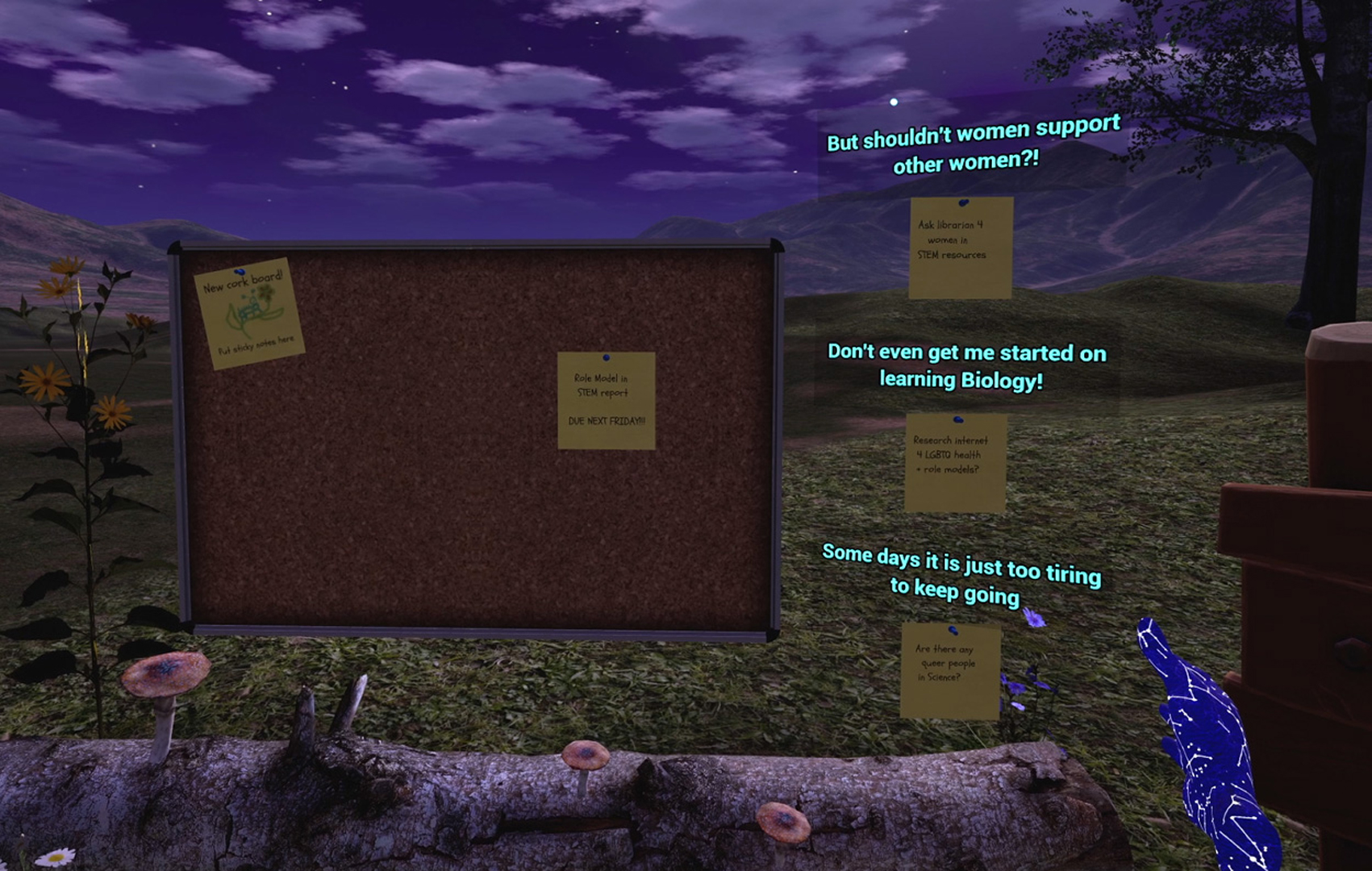“Mementorium: Designing for Playful and Interactive Learning About Gender and Sexuality-based Marginalization” by Paré and Windsor
Notice: Pod Template PHP code has been deprecated, please use WP Templates instead of embedding PHP. has been deprecated since Pods version 2.3 with no alternative available. in /data/siggraph/websites/history/wp-content/plugins/pods/includes/general.php on line 518
Conference:
- SIGGRAPH 2021
-
More from SIGGRAPH 2021:
Notice: Array to string conversion in /data/siggraph/websites/history/wp-content/plugins/siggraph-archive-plugin/src/next_previous/source.php on line 345

Notice: Array to string conversion in /data/siggraph/websites/history/wp-content/plugins/siggraph-archive-plugin/src/next_previous/source.php on line 345

Type(s):
Entry Number: 01
Title:
- Mementorium: Designing for Playful and Interactive Learning About Gender and Sexuality-based Marginalization
Program Title:
- Immersive Storytelling
Presenter(s):
Description:
Mementorium is a heartfelt story about identity and belonging told through a virtual reality (VR) branching narrative. Mementorium’s design builds upon our previous designs and research on queer reorientations to computing and queer approaches to embodied learning in VR. The design is accomplished through the branching narrative, which supports listening to marginalized experiences and emotional co-construction of the story, and through the interaction design, which encourages play and embodied learning and centers authentic practices of belonging and becoming. This paper introduces Mementorium’s narrative and interaction design and research that informed the design. Mementorium is an approximately 30-minute single-player, room-scale interactive VR experience intended for a general audience to learn about gender and sexuality-based marginalization in science and technology.
References:
- David Denborough. 2014. Retelling the stories of our lives: Everyday narrative therapy to draw inspiration and transform experience. W.W. Norton & Company, New York, NY. https://wwnorton.com/books/Retelling-the-Stories-of-Our-Lives/
- Robb Lindgren and Mina Johnson-Glenberg. 2013. Emboldened by embodiment: Six precepts for research on embodied learning and mixed reality. Educational Researcher 42, 8 (2013), 445–452. https://doi.org/10.3102/0013189X13511661
- Dylan Paré. Forthcoming/2021. A critical review and new directions queering computing and computing education. In Oxford Research Encyclopedia of Education, George Noblit (Ed.). Oxford University Press. https://doi.org/10.1093/acrefore/9780190264093.013.ORE_EDU-01524.R1
- Dylan Paré, Pratim Sengupta, Scout Windsor, John Craig, and Matthew Thompson. 2019. Queering virtual reality: A prolegomenon. In Critical, transdisciplinary and embodied approaches in STEM education, Marie-Claire Shanahan Pratim Senguptaand Beaumie Kim (Eds.). Springer, Cham, Cham, Switzerland, Chapter 17, 307–328. https://doi.org/10.1007/978-3-030-29489-2
- Dylan Paré, Marie-Claire Shanahan, and Pratim Sengupta. 2020. Queering complexity using multi-agent simulations. In The Interdisciplinarity of the Learning Sciences, 14th International Conference of the Learning Sciences (ICLS) 2020, Melissa Gresalfi and Ilana Seidel Horn (Eds.). Vol. 3. International Society of the Learning Sciencess, Nashville, TN, 1397–1404. https://doi.org/10.22318/icls2020.1397
- Bonnie Ruberg. 2018. Queer indie video games as an alternative digital humanities: Counterstrategies for cultural critique through interactive media. American Quarterly 70, 3 (2018), 417–438. https://doi.org/10.1353/aq.2018.0029
- Pratim Sengupta, Amanda Dickes, and Amy Farris. 2018. Toward a phenomenology of computational thinking in STEM education. In Computational thinking in the STEM disciplines, Myint Swe Khine (Ed.). Springer, Cham. https://doi.org/10.1007/978-3-319-93566-9_4
Additional Images:







